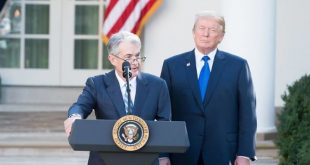On August 26, 2025, President Donald Trump announced his intention to fire Federal Reserve Governor Lisa Cook, citing allegations of mortgage fraud in a move that has sparked intense debate over the independence of the Federal Reserve. This unprecedented action marks the first time a U.S. president has attempted to remove a sitting Fed governor, raising significant legal and economic questions. Cook, backed by her legal team, has vowed to challenge the decision in court, setting the stage for a high-stakes confrontation that could reshape the central bank’s autonomy.
Trump’s decision stems from allegations by Federal Housing Finance Agency Director William Pulte, who claimed Cook misrepresented two properties as her primary residence on mortgage applications in 2021, before her tenure at the Fed. In a letter posted on Truth Social, Trump argued that these allegations, which are under investigation by the Department of Justice but have not resulted in charges, constitute “sufficient cause” for her removal. He emphasized the need for public confidence in the Fed’s integrity, stating, “The American people must be able to have full confidence in the honesty of the members entrusted with setting policy.” However, Cook and her attorney, Abbe Lowell, have firmly rejected the move, asserting that Trump lacks the legal authority to fire her and that the allegations lack substantiated evidence. “His attempt to fire her, based solely on a referral letter, lacks any factual or legal basis,” Lowell declared, announcing plans to file a lawsuit to block the action.
The Federal Reserve, designed to operate independently from political influence, operates under the Federal Reserve Act of 1913, which allows the president to remove governors only “for cause,” typically interpreted as malfeasance or dereliction of duty during their term. Legal experts, including Columbia University law professor Lev Menand, argue that prior private conduct, such as the mortgage allegations against Cook, may not meet this threshold. The Fed itself has signaled support for Cook, stating she will seek a judicial decision to confirm her ability to continue serving her 14-year term, which began in 2022 and extends to 2038. The central bank underscored the importance of its independence, noting that long tenures and removal protections ensure monetary policy decisions prioritize data and economic analysis over political pressures.
Economic analysts have sounded alarms over the potential consequences of Trump’s actions. The Economic Policy Institute warned that undermining the Fed’s independence could destabilize markets and fuel inflation, as interest rate decisions might reflect presidential whims rather than economic realities. “Presidential capture of the Fed would signal to decision-makers throughout the economy that interest rates will no longer be set on the basis of sound data,” the institute stated. Similarly, Elizabeth Wilkins, a former Federal Trade Commission official, cautioned that such interference could weaken the economy by increasing market instability. Some market reactions have already emerged, with the yield on the 30-year Treasury note briefly climbing to 4.9%, reflecting investor concerns about long-term inflation risks.
The controversy surrounding Cook’s attempted firing had a mixed impact on key financial assets on Tuesday, August 26, 2025, reflecting investor uncertainty about the Federal Reserve’s future independence. U.S. stock markets opened lower, with futures indicating declines—Dow futures down 0.14%, S&P 500 futures slipping 0.08%, and Nasdaq futures losing 0.06%—but recovered throughout the day, ending in positive territory as the S&P 500 gained 0.2% and the Dow Jones Industrial Average rose about 44 points, or 0.1%. In the bond market, the yield curve steepened as short-term yields fell, with the 2-year Treasury yield dropping more than 4 basis points to 3.685%, signaling expectations of near-term rate cuts, while longer-term yields rose, pushing the 30-year Treasury yield up over 2 basis points to 4.911% and the 10-year yield slightly lower at 4.26%. Gold prices increased by 0.3%, and the U.S. dollar initially dipped against major currencies before recovering, amid broader concerns over potential inflation and policy shifts.
Trump’s move is part of a broader push to influence the Federal Reserve, which he has criticized for not lowering interest rates to stimulate economic growth. The administration is reportedly exploring ways to extend its influence beyond the Fed’s Board of Governors to its 12 regional banks, which contribute to the Federal Open Market Committee’s interest rate decisions. If successful in removing Cook, Trump could appoint a replacement more aligned with his views, potentially shifting the balance of the seven-member board, especially following the recent resignation of another governor, Adriana Kugler. However, analysts note that even with Cook’s removal, Trump would not immediately secure a majority, as the committee includes regional bank presidents not appointed by the White House.
The dispute has drawn sharp political reactions. Democratic lawmakers, including Senator Elizabeth Warren, have condemned the action as an “authoritarian power grab” that violates the Federal Reserve Act, urging courts to intervene. Conversely, some Republicans, like Senator Rick Scott, have supported Trump’s push for accountability, while others, including former Treasury Secretary Larry Summers, have criticized the lack of due process. Commerce Secretary Howard Lutnick doubled down on the allegations, arguing that any evidence of mortgage fraud disqualifies Cook from serving. As the legal battle looms, potentially reaching the Supreme Court, the outcome could set a precedent for the Fed’s independence and its ability to shield monetary policy from political interference.
Lisa Cook, the first Black woman to serve as a Fed governor, has a distinguished background as an economist, with degrees from Oxford, Spelman College, and UC Berkeley, and prior roles at Michigan State University and Harvard. Her research on the economic impacts of racial violence has been widely recognized. Appointed by President Joe Biden in 2022, her confirmation required a tie-breaking vote by then-Vice President Kamala Harris. As she prepares to fight for her position, the controversy surrounding her attempted firing underscores the delicate balance between political authority and the Fed’s mandate to serve the long-term interests of the American economy.

 Noor Trends News, Technical Analysis, Educational Tools and Recommendations
Noor Trends News, Technical Analysis, Educational Tools and Recommendations




